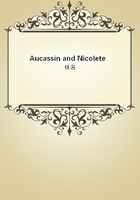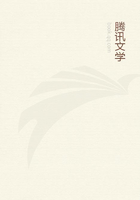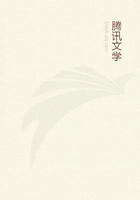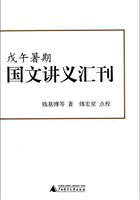Freedom of opinion is absolutely essential to progress,social as well as intellectual,and therefore thought should be able to play freely upon the sway of irrational custom.The tyranny of the commonplace,of a mental atmosphere which stifles genius and originality,is a danger to social welfare.That Mill held such convictions strongly was the source of his power.That he held to them,even when they condemned some party dogma,was honourable to his sincerity.That he filed to make them into a satisfactory or consistent whole was due to preconceptions imbibed from his teachers.Perhaps it is truer to say that he could not accurately formulate his beliefs in the old dialect than that his beliefs were intrinsically erroneous.
Upon his terms a clear demarcation of the sphere of free action is impossible.Mill,as an 'individualist,'took society to be an 'aggregate'instead of an,organism.'To Mill such phrases as 'organic'savoured of 'mysticism';they treated a class name as meaning something more than the individuals,and therefore meant mere abstractions parading as realities,(60)and encouraged the fallacies current among Intuitionists and Transcendentalists.And yet they point at truths which are anything but mystical.It is a plain fact that society is a complex structure upon which every man is dependent in his whole life;and that he is a product,moulded through and through by instincts inherited or derived from his social position.
Conversely,it is true that the society is throughout dependent upon the character or the convictions and instincts of its constituent members.To overlook the reciprocal action and reaction,and the structure which corresponds to them,is necessarily to make arbitrary and inaccurate assumptions and to regard factors in a single process as independent entities.The tendency of the Utilitarian was to regard society as a number of independent beings,simply bound together by the legal or quasi-legal sanctions.Morality itself was treated as a case of external 'law.'The individual,again,was a bundle of ideas,bound together by 'associations which could be indefinitely modified.'In both cases,the unity was imposed by a force in some sense 'external,'and therefore the whole social structure of individual character became in some sense 'artificial.'It is the acceptance of such assumptions which hinders Mill in his attempt to mark out the individual sphere.
We have seen the difficulties.In morality,it is impossible to divide the 'extra-regarding'from the 'self-regarding'qualities,because morality is a function of the whole character considered as a unit.Mill,therefore,has to concede a considerable sphere to moral pressure.The fact that in positive law it is not only possible but necessary to distinguish 'self-regarding'actions from 'extra-regarding'actions marks the sphere within which legislation can work efficiently.But the same fact proves also that the direct legal coercion is only a subordinate element in the whole social process.Though it is only called into play to suppress certain overt actions,it indirectly affects the whole character:it may help to stimulate all the qualities,'self-regarding'or otherwise,which form a good citizen;and to argue that it should be indifferent to these broader results is to omit a reference to the wider 'utility'which is identical with morality.Mill is thus driven to awkward casuistry by trying to exclude the moral considerations where they are obviously essential,or to admit them under some ingenious pretext.In economic problems the difficulty is more conspicuous;for we have there to do with the whole industrial structure,which is affected throughout by institutions created or confirmed by law.It is,again,impossible to distinguish the spheres of the 'natural'and the 'artificial'--or of individual and state action.The industrial structure is a product of both.
Consider all state action to be bad because 'artificial,'and you are led to such an isolation of the 'individual'as reduces all responsibility to a name for selfishness.You are to teach men to be prudent simply by leaving the imprudent to starvation.Mill,revolted by this consequence,admits that the state must have regard to the injustice for which it is,at least indirectly,responsible.He then inclines to exaggerate the power of the 'artificial'factor because it embodies human 'volition'and leans towards the crude Socialism which assumes that all institutions can be arbitrarily reconstructed by legislative interference.Hence when we come to the political problem,to the organ by which the legal bond is constructed,Mill exaggerates the power of 'making'as contradistinguished from the 'growing.'
He seems to assume that institutions can 'create'the instincts by which they are worked:or to forget that they primarily transmit instead of originating power,though indirectly they foster or hinder the development of certain tendencies.Mill would guard against the abuse of political power by dividing it among the separate individuals.He then perceives that he is only redistributing this tremendous power instead of diminishing its intensity.By isolating the 'individual'he has condemned him to narrow views and petty ideals,but has not prevented him from impressing them upon the mass of homogeneous units.Hence,he is alarmed by the inevitable 'tyranny of the majority.'He has put a tremendous power into the hands of Demos,and can only suggest that it should not be exercised.
It is,if I am right,the acceptance of this antithesis,put absolutely,the 'individual,'as something natural on one side,and law,on the other side,as a bond imposed upon the society,which at every step hampers Mill's statement of any vital truths.


